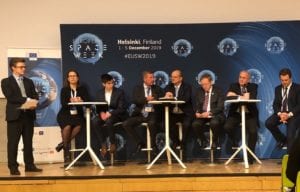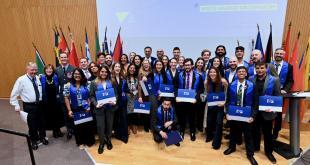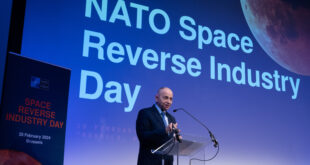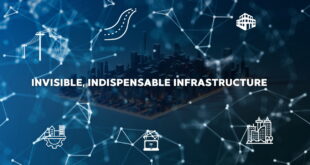By Valerie Vlasenko

The EU strategy for space outlines the fostering of a competitive and innovative European space sector as one of its key objectives. Yet becoming a global leader in space requires funding and extensive support in research and development (R&D). To secure this global competitiveness, Europe has its financial instrument – Horizon 2020 – which covers a wide range of sectors, including space.
In the context of space, Horizon 2020 is designed to enable the European space research community to develop innovative space technologies and operational concepts “from idea to demonstration in space.” Since 2014, the Horizon 2020 Space programme has run under the motto ‘Prepare for the increasing role of space in the future and reap the benefits of space now’.
For New Space small and medium-sized enterprises (SME’s) and research institutions, Horizon 2020 is a great tool to attract additional funding for innovation and R&D. Funded projects use space-generated data for Earth applications, for instance, to monitor the sustainability of agriculture or support urban planners to coordinate city resources.
As the year 2020 draws near, what is going to happen with Europe’s largest Research and Innovation programme with nearly €80 billion of funding? The development of the next EU Framework Programme – Horizon Europe is already underway. We asked ESA Director-General Jan Worner, and Deputy Director-General for Internal Market, Industry, Entrepreneurship, and SME’s, Pierre Delsaux, what European space researchers can expect from Horizon Europe at EU Space Week that took place in Helsinki on 1-5 December 2019.
The New Approach
“Horizon 2020 will be transformed into Horizon Europe. The new programme will run from 2021 to 2027. There are two main differences between the two: the amount of money requested for Horizon Europe and how it will be distributed,” said Pierre Delsaux.
“For Horizon Europe, the Commission has requested a total of €100 billion. That is a lot more than for Horizon 2020. In Horizon 2020 the total amount of money was allocated to specific sectors. For example, the space sector had its own budget allocated for the entire duration of the programme. With Horizon Europe this approach will change. The money will be allocated across clusters, such as civil society, health, climate, food, etc. Space will fall under the Digital, Industry and Space cluster,” Delsaux explained.
“There won’t be a set amount of money allocated to the space sector, or any other sector for that matter, as it was in the Horizon 2020. In Horizon Europe we will be focusing on creating synergies between different sectors, which, we believe, will result in more competitiveness and more innovation,” added Delsaux.
“The good news is that it will be possible to use both Horizon and regional fund subsidies for one project. It was not possible before – one could either use subsidies from Horizon or from regional funds,” added Worner.
Whether the new approach will create more, or less, funding opportunities for space projects remains to be seen. What is clear is that the applicants will have to demonstrate broader cross-sectoral collaboration and integration to other, not necessarily space-related, fields. Plus, the new Horizon Europe system will enhance synergies with regional funding programmes bringing together a wider range of actors and giving more flexible funding for the applicants.
In the meantime, Horizon 2020 is accepting proposals for its final calls. Right now it is in the middle of its Horizon EGNSS market uptake 2019-2020 Call, with a total budget of 21 million Euros, that funds innovative projects that use EGNSS-based applications for fields such as smart mobility, mapping and surveying, disaster management, and environmental protection among others. The deadline for submissions is 5 March 2020.
For projects focusing on Earth Observation, Horizon 2020 runs a Copernicus market uptake 2019-2020 Call. This funds projects that use state-of-the-art technologies such as big data processing, machine learning, and artificial intelligence (AI), and other technologies in Earth observation. The deadline for submissions is also 5 March 2020.
More information about the ongoing calls can be found here.
Valerie Vlasenko is an entrepreneur tackling the dilemma of popularising space. Founder of VSpace Media and Curator of Arctic15 Space conference, Valerie has a rich experience as an entrepreneur, a journalist, and a space lawyer.





